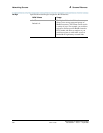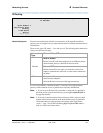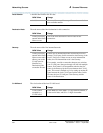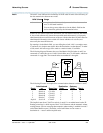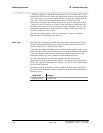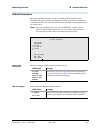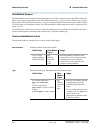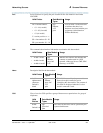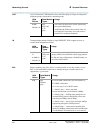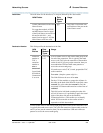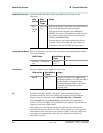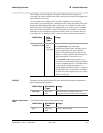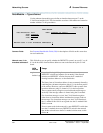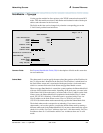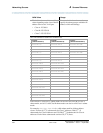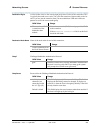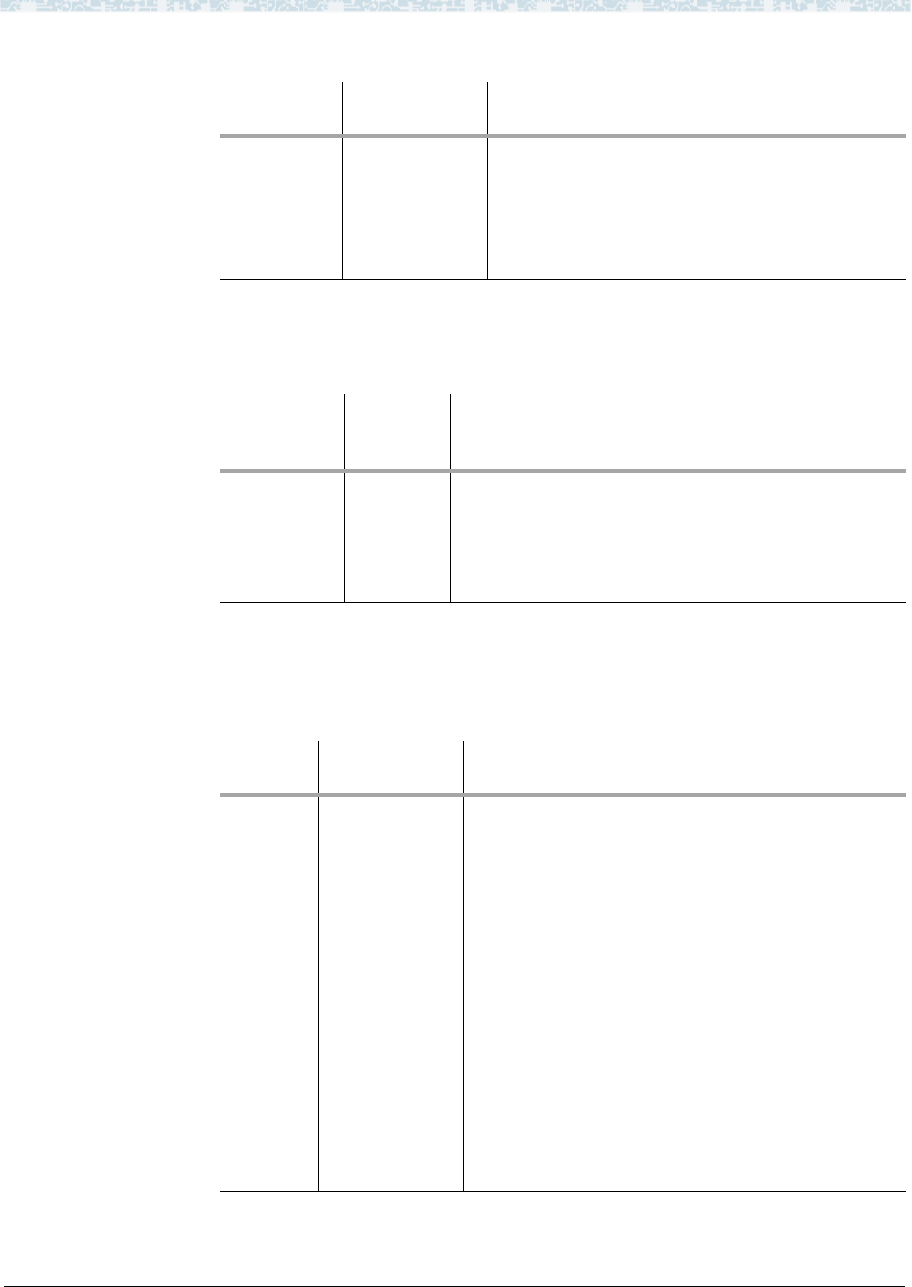
Networking Screens A Screens Reference
Administration for Network Connectivity
CID: 77730 555-233-504 — Issue 1 — April 2000
258
COR Class of restriction. COR identifies caller and called-party privileges for telephones,
telephone groups, data modules, and trunk groups.
TN Tenant partition number. Enables a single DEFINITY ECS to appear to users as
several small independent switches.
BCC Bearer capability class. This field is not administrable on the data module screens.
BCC is used with ISDN connections to identify the types of traffic that can be
supported by a given trunk.
Valid
Entries
Data Module
Types
Usage
0-95
Default is 1
ppp
procr-intf
x.25
pdm
The values for these fields will be specified by
the system administrator.
Administer the COR so that account codes are
not required. Forced entry of account codes is
turned off for wideband endpoints.
Valid
Entries
Data
Module
Types
Usage
1-20 (csi,
si)
1-100 (r)
Default is 1
ppp
procr-intf
x.25
pdm
Partitioning could be useful when 2 or more user
groups (tenants) have different switch-usage patterns.
For R6 and later configurations, all MASI trunks are
associated with Tenant 1.
Valid
Values
Data Module
Types
Usage
0-4 ppp
ethernet
pdm
For non-ISDN connections, leave the default (2).
For ISDN connections,
0 = Voice only. Use for H.323 trunks.
1 = Mode 1 data — allows restricted
circuit-switched data on a B-channel; 56Kbps
2 = Mode 2 data — 64 Kbps data packaged in an
inverted HDLC protocol and limited to user data
rates between 300bps and 19.2Kbps.
3 = Mode 3 data — when circuit switched, 64Kbps
digital data packaged in LAPD protocol.
4 = Mode 0 data — a data bearer capability that
allows full 64Kbps unrestricted circuit switched data
on a B-channel. Also referred to as clear channel.



